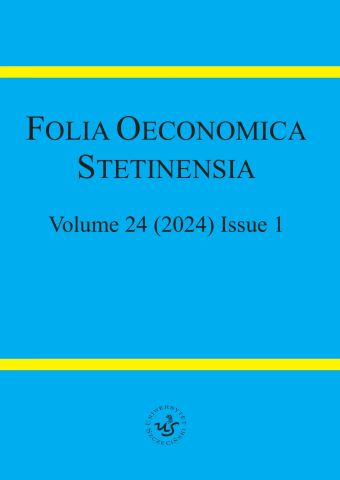Inflation Dynamics and Policy Mix in Ghana
Inflation Dynamics and Policy Mix in Ghana
Author(s): Temitope Lydia Adedoyin LeshoroSubject(s): Economy, National Economy, Financial Markets, Public Finances
Published by: Wydawnictwo Naukowe Uniwersytetu Szczecińskiego
Keywords: ARDL; monetary policy; fiscal policy; inflation; Ghana
Summary/Abstract: Research background: Ghana was the second African country to adopt the inflation-targeting framework in 2007. The country faced persistently high levels of inflation, exceeding 100 percent in the early 1980s. Since the adoption of the inflation targeting regime, the inflation rate has decreased and remains below 20 percent. Purpose: Given the importance of the policy mix in achieving price stability and economic growth in any economy, this study examines which policy mix is more effective in determining the inflation dynamics in Ghana. Research methodology: Annual data from 1980 to 2021 and the autoregressive distributed lag (ARDL) were used, firstly on individual monetary and fiscal policy models and then jointly on the policy mix model. Results: Results show that fiscal policy is effective and significant in determining inflation dynamics in Ghana in the long run, while monetary policy is ineffective, less dominant, and statistically insignificant. Monetary policy is effective and significant in the short run. Based on the findings of the study, policy recommendations include giving more attention to the possible coordination of fiscal and monetary policies than has been previously given. Novelty: The study’s originality is in examining if the monetary or fiscal policy (policy mix) effectively regulates the inflation rate in Ghana; the inflation target and the exchange rate as external shocks were included, amongst others and estimating the separate and combined models for the policy mix.
Journal: Folia Oeconomica Stetinensia
- Issue Year: 24/2024
- Issue No: 1
- Page Range: 124-143
- Page Count: 20
- Language: English

